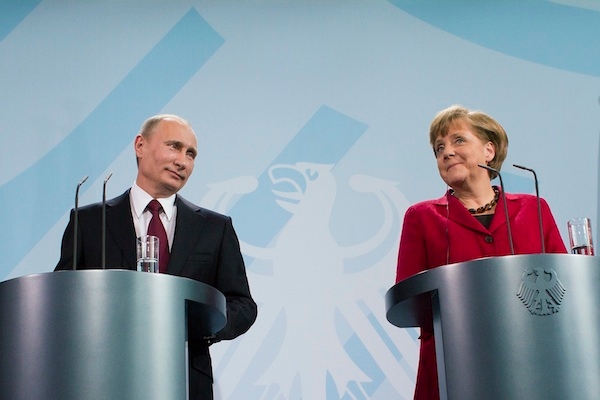‘Corruption,’ wrote Edward Gibbon in his peerless Decline and Fall of the Roman Empire, is ‘the most infallible symptom of constitutional liberty.’ I was reminded of this phrase when thinking about the Eurozone crisis. Commentators present a dichotomy between the discipline of northern Europe and the frivolity of southern Europe, which is characterised by bureaucratic, judicial and political corruption. Brussels has already imposed technocratic governments on Italy and Greece, and seeks to force Teutonic virtues on those economies. Constitutional liberty is to be limited in the hope of eradicating corruption (both in a literal and figurative sense) in southern Europe. Unsurprisingly, this new imperium is not universally popular: witness the extraordinary rise of Syriza, and the less spectacular but still notable performance of the neo-Nazi party Golden Dawn, in Greece.
While Europe tries to homogenise, its enemies make mischief. Bronwen Maddox reports (£) in today’s Times that Iranian emissaries have travelled to Athens offering cheap (and currently sanctioned) oil — a commodity that Greece will need if it is to reverse decline. Maddox adds that Vladimir Putin, that antediluvian Cold War warrior, is playing old games by trying to divide east and west with the promise of easy access to Russia’s vast energy resources. Who needs nuclear bombs to frighten and divide European countries when you have oil? Our dependence on fossil fuels is undiminished; and, without access to internal supplies and without sufficient modern plants in which to refine them, Europe relies heavily on imports of crude and gasoline. (The European Commission has further details.)
This is one subtext in a seething article in today’s Mail by Sir Max Hastings. He says that the European continent faces its ‘gravest and most frightening tumult of our lives’, as national interests reassert themselves in the face of German attempts to hold the single currency, and the union, together. Sir Max is scathing of German policy, saying that ‘the brain of the traditionally most hard headed country in Europe has collapsed into mush’.The wind has turned against Merkel in recent weeks, as world leaders look on at in terror at her approach to a crisis that threatens to engulf them. This uneasy atmosphere appears to have poisoned the G20 meeting, where leaders are cajoling Merkel to act and Jose Manuel Barroso has insisted that Europeans are not attending the conference to receive an economics lecture.
The pervasive sense at present is one of powerlessness. Merkel says that Germany is not powerful enough to solve the crisis alone. Hastings offers sympathy for those politicians whose nations are likely to be sunk by a crisis not of their making. And Rachel Sylvester (£) has devoted her column to the subject, saying that British leaders can do little more than hold our hand through the impending storm.
Others are less fatalistic. Edward Gibbon defined leadership as a ‘heart to resolve, a head to contrive and a hand to execute’. It is, in short, a question of will. George Osborne has acted: increasing debt to stimulate lending and tightening capital controls to strengthen confidence in the banks, or so the thinking goes. As Fraser has argued, Osborne has other options, including a supply-side revolution. The government could go further if it so desired. The idea, or excuse, that the nation state is powerless before this adversity is simply pernicious.





Comments